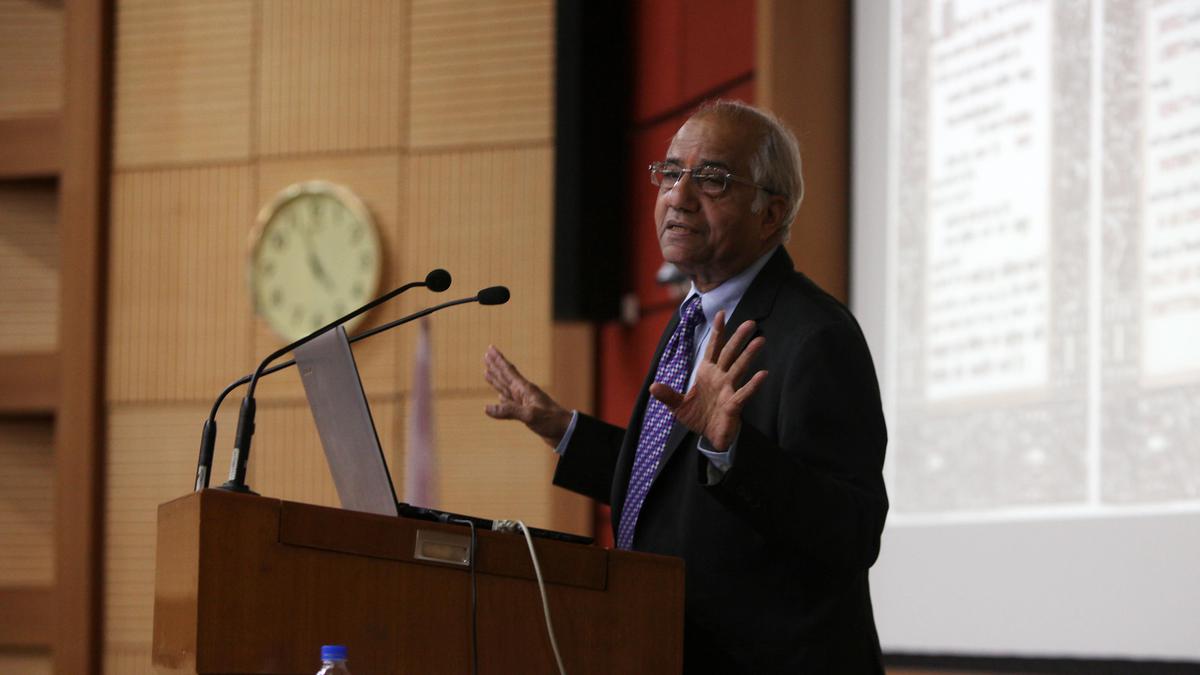
Data Protection Bill | Granting government exemption causes great concern, says Justice Srikrishna
The Hindu
Justice Srikrishna on draft Data Protection Bill: “granting govt exemption causes great concern”
“The provisions granting exemption to the government and government bodies from all sections of the law in the draft Digital Personal Data Protection (DPDP) Bill, 2023, cause “great concern,” says Justice (retired) B.N. Srikrishna of the Supreme Court, who had proposed the first draft of the Bill in 2018.
The Union Cabinet on July 5 cleared the Bill that essentially allows laypersons to complain to the Data Protection Board of India, consisting of technical experts constituted by the government, if they have reason to believe that their personal data has been used without their consent, for example, cell phone numbers or Aadhaar details.
The DPDP Bill also outlines practices for entities that collect personal data, how that data should be stored and processed to ensure there is no breach, as well as rights of the persons whose data is being used. It is not clear what changes, if any, have been made to the DPDP and it will be tabled in the upcoming monsoon session of Parliament scheduled to begin on July 20.
Talking to The Hindu, Justice Srikrishna says the draft causes “great concern” over the provisions that grant exemption to government and its bodies. He said, “The provisions granting exemption to the government and government bodies from all sections of the law in the draft Bill cause great concern.” He added, “The draft gives too much margin to the government and does little to protect individuals’ fundamental right of data privacy.”
In an interview with The Hindu in November 2022, Justice Srikrishna had said, “The Bill is fundamentally flawed as it would permit, and may encourage, the executive to act capriciously and infringe on the fundamental right of privacy of personal data. The so-called regulator will be a puppet of the government and will have no independence.”
He had also said, “The robust and independent regulator like the Data Protection Authority envisaged in the 2018 draft is needed. The Board contemplated under the present Bill will ‘be a captive of the government. The qualifications, tenure, procedure of appointment have all been relegated to delegated legislation. It is worse than the previous Bill. There is complete failure to address the issue if the blanket exemptions are granted. .”
The draft in its current avatar will levy a penalty of ₹500 crore in case of data breaches and courts and enforcement agencies enjoy wide exemptions from key requirements. As the Bill’s requirements do not apply when “personal data is processed in the interest of prevention, detection, investigation or prosecution of any offence or contravention of any law” or “the processing of personal data by any court or tribunal or any other body in India is necessary for the performance of any judicial or quasi-judicial function”.

“Writing, in general, is a very solitary process,” says Yauvanika Chopra, Associate Director at The New India Foundation (NIF), which, earlier this year, announced the 12th edition of its NIF Book Fellowships for research and scholarship about Indian history after Independence. While authors, in general, are built for it, it can still get very lonely, says Chopra, pointing out that the fellowship’s community support is as valuable as the monetary benefits it offers. “There is a solid community of NIF fellows, trustees, language experts, jury members, all of whom are incredibly competent,” she says. “They really help make authors feel supported from manuscript to publication, so you never feel like you’re struggling through isolation.”

Several principals of government and private schools in Delhi on Tuesday said the Directorate of Education (DoE) circular from a day earlier, directing schools to conduct classes in ‘hybrid’ mode, had caused confusion regarding day-to-day operations as they did not know how many students would return to school from Wednesday and how would teachers instruct in two modes — online and in person — at once. The DoE circular on Monday had also stated that the option to “exercise online mode of education, wherever available, shall vest with the students and their guardians”. Several schoolteachers also expressed confusion regarding the DoE order. A government schoolteacher said he was unsure of how to cope with the resumption of physical classes, given that the order directing government offices to ensure that 50% of the employees work from home is still in place. On Monday, the Commission for Air Quality Management in the National Capital Region and Adjoining Areas (CAQM) had, on the orders of the Supreme Court, directed schools in Delhi-NCR to shift classes to the hybrid mode, following which the DoE had issued the circular. The court had urged the Centre’s pollution watchdog to consider restarting physical classes due to many students missing out on the mid-day meals and lacking the necessary means to attend classes online. The CAQM had, on November 20, asked schools in Delhi-NCR to shift to the online mode of teaching.









